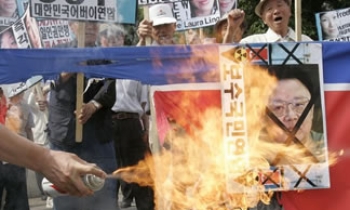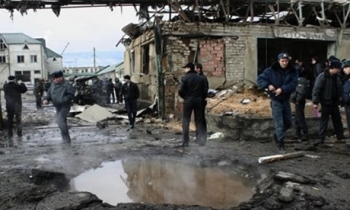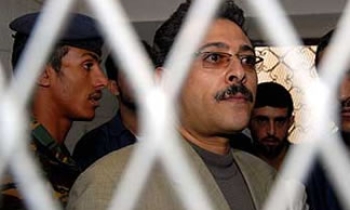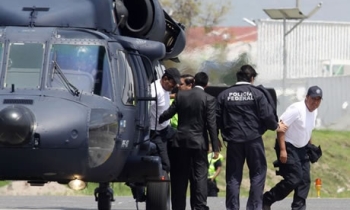At the far end of Rafi Marg in New Delhi is located the United News of India (UNI) office. Surrounded by government offices, UNI, inconspicuously works from a colonial style bungalow. To the chagrin of its employees, UNI is known more for its canteen that serves inexpensive south Indian food and snacks, than for what it is – a national news agency.
Here, everyone knows, legendary writers, journalists, poets, theatrepersons, actors, and editors would often get together to share the news of the day. Even famous industrialist, late Dhirubhai Ambani, would occasionally drop by for a quick snack with a friendly bureaucrat. Many important deals, old-timers recall, were struck over a plate of piping hot dosa and uttapam.
The takeover of UNI by Zee TV’s owner, Subhash Chandra, did not happen in the decrepit but hallowed canteen. It was conducted stealthily in the boardrooms of Mumbai, facilitated by Chandra’s friends on the UNI board. Sixty per cent shares were given to Zee for about Rs 30 crores, after spurning a deal that was of far higher value from a Madhya Pradesh media company. It is the MP-based media baron who has moved the court to stay this sale of shares.
The transfer of shares has outraged UNI’s employees and all those who have been striving to create a media entity independent of corporate control in India. The UNI is an Article 25 company—almost like a trust—where the profits are mandated to be ploughed back into its growth and expansion. So, if a media entity is trying to gain control of a company like UNI, what is the reason? It is this fact that has made the employees and their supporters deeply suspicious of the intentions and motives of Chandra.
The Zee boss has sought to clarify that his move was meant to make UNI more competitive and he has promised to infuse Rs 100 crore in a company whose net worth has been eroded due to years of mismanagement and criminal indifference. Employees’ unions are questioning even this motive and wondering why he wants to be so benevolent if he is not going to get anything out of it.
Chandra, as media watchers can testify, is not given to altruism. He has made money from diverse enterprises - from selling rice to the now defunct Soviet Union to setting up entertainment parks. He owns 20 TV channels and has been likened to Rupert Murdoch by some uncharitable commentators.
Chandra, in his many interactions with the press, has hinted that the media business has become very competitive and his company needed to do things to get an edge over others. Buying out UNI is, quite evidently, a brazen attempt to control the information flow from across the country and determine what will be watched, heard and read. Indeed, is he doing this at someone’s behest?
All the breaking news stories on satellite news channels (which we have become used to suffering all day) are often first reported by news agencies like the UNI and its competitor, the Press Trust of India (PTI). Getting a stranglehold on UNI would give an individual or organisation incomparable control of a kind never exercised before. What troubles many veterans in the media and the political world are the manifest links of Chandra with the Hindutva front, the Rashtriya Swayam Sevak Sangh (RSS) to be exact, which has shown an obsessive fondness for influencing and controlling the media, especially when its electoral front, the BJP, is calling the shots at the Centre.
The UNI has five original shareholders: The Times of India, Hindustan Times, Deccan Herald, The Hindu, and the Ananda Bazaar Patrika. Many more were added to this list and they were all expected to contribute a small portion of their earnings to keep the agency afloat. The government, too, helped UNI in different ways, by giving it subsidised or free land.
As reported earlier, the agency has been in dire straits for quite some time. Apocryphal as it may sound, but many years ago, UNI was forced to borrow money from its successful canteen to pay its journalists their salaries. The agency, however, never recovered. “We never got salaries on time,” a UNI employee confided to this reporter. Although the Zee money, apparently, has not been deposited, some UNI staffers and journalists claim that things might look better if Chandra takes over and pumps in money.
Chandra’s predatory instincts came into full play due to the abdication of responsibility towards the agency by its heavyweight shareholders like The Times of India, The Hindu, Hindustan Times and others. Some of them, it is learnt, have even discontinued their contract with the news agency. One big English newspaper has literally blocked the UNI for some years now; no staffer can access it.
The shareholders seldom attended board meetings and never really tried to figure out ways to revive the sick news agency which was struggling to compete with the more affluent PTI. The UNI, as a senior editor pointed out, did not have the money to buy the hardware (especially for TV) and employ reporters and sub-editors to lend quality to its operations. It is learnt that some of the media heavyweights too are now making noises about retrieving UNI from Mr Johnny Come Lately of Zee. But surely, they should also take the blame for this unsavoury mess in a national news agency?
Earlier, Chandra had made an unsuccessful bid to buy Amar Ujala, an Agra-based Hindi newspaper group, by backing an estranged brother; but that deal also fell through. There are strong indications that the government, under enormous pressure from political parties, the Left, civil society groups, and eminent individuals might intervene in this deal and restore status quo. In any case there is a lot happening in the media that the government needs to worry about but doesn’t look concerned at all.
Corporate raiders trying to control independent media entities have become a neo-liberal norm in the country these days. Intelligence agencies hint at the dubious funds used to pick up stakes in media entities. No one has a clue about the ownership of some media offerings. In some cases, even when the actors trying to take over the media groups are visible, there is little clarity as to whose funds they are holding.
A multi-edition newspaper group is a case in point. This newspaper is printed from both India and abroad, has a virtually non-existent circulation and very few advertisements. Intelligence agencies indicate that it is the flow of dubious funds from the Gulf that has kept it afloat. Although these funds have not coloured much of the reporting in this newspaper, there are suggestions from newspapers like The Times of India that higher foreign equity could jeopardise national interest. This is a specious argument meant to prevent foreign competition in an area which has become the preserve of some of the most obscurantist and cheap, trivia-selling shopkeepers.
If the government decides to allow higher foreign equity in the print media, there will be more resources available to media organisations that are struggling for want of funds; they will not have to resort to the funny-money allegedly peddled by miscellaneous Dubai bhais. Then, there will be more professionalism and greater transparency, the kind that was not there in the UNI takeover bid. And more crucially, it will mark the end of the tyranny of mediocrity, banality and crudity, and give honest, competent professionals a level-playing and competitive field. Only then can independent journalism claim that it is responsible and of high quality, be considered socially and politically relevant, objective, integral, empowering, and visionary. Only then can journalism in the Indian democracy really flourish.









